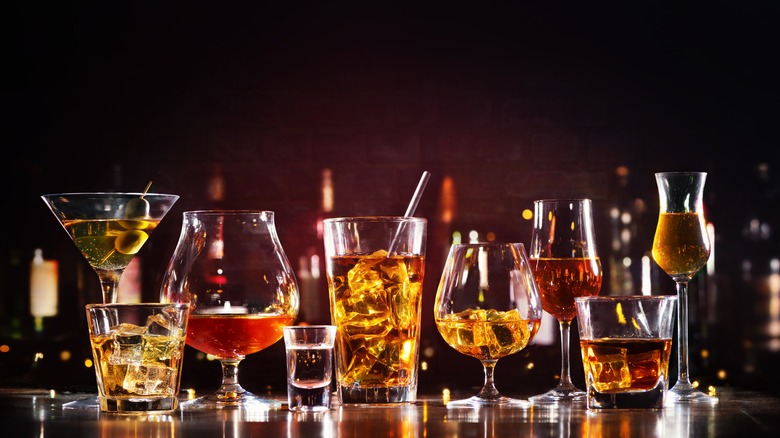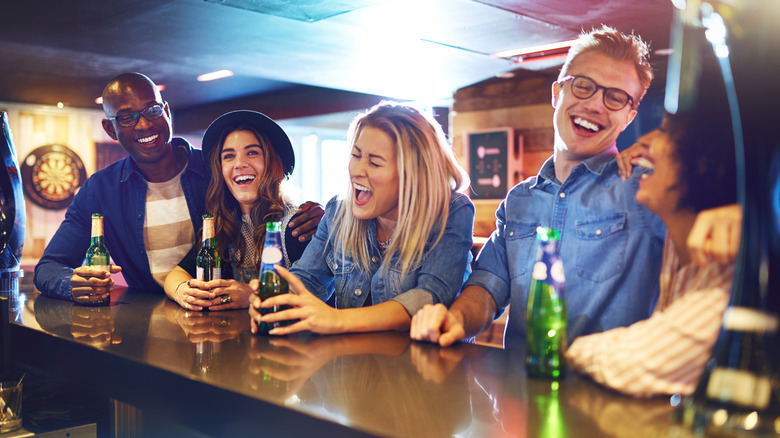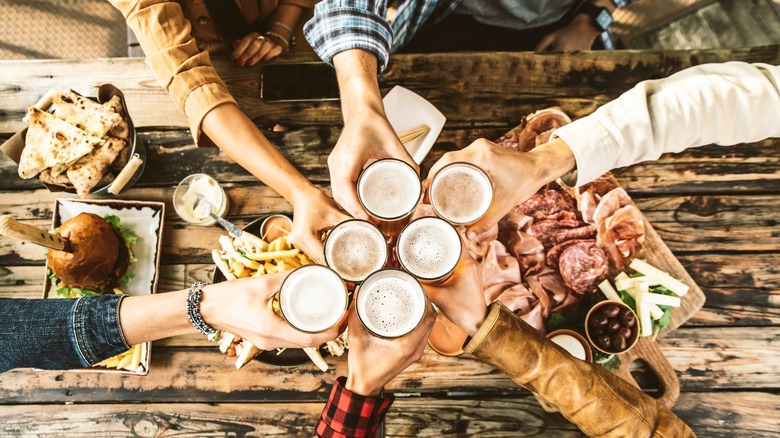The Science Of Why Loud Music Is Linked To Increased Alcohol Consumption
Nowadays, it's pretty common to hear people talking about the dangers of loud music. Since people started turning to headphones and earbuds a few decades ago, the effects of loud music have been an increasing concern, as it's been shown to cause irreversible damage to the ears and even premature deafness (via Oklahoma Hearing Center).
But did you know loud music can have other dangers, too? One study from researchers in France found that loud music can actually make you drink more alcohol (via Science Daily). Now, alcohol isn't good for your body, and drinking too much can lead to an increased risk of liver disease, depression, and even cancer, according to the CDC. For that reason, it's best to keep your drinking at a moderate level, which the CDC defines as one drink or less a day for women, or two drinks or less a day for men.
But sometimes, you might find yourself knocking back a few extra drinks without thinking too much about it. One factor that might be spurring your increased consumption? Loud music.
People in loud bars drink more
Lots of studies have been done that explore how people's drinking behavior is affected by their environments. For instance, research has found that people drink more when there's music playing in a bar as compared to when there isn't, according to Science Daily. People also drink faster if the tempo of the music speeds up.
But it was a 2008 study that showed that louder music in bars actually leads to more drinking. This study, done by a group of researchers in France, compared drinking by bar goers when the music was set at 72 decibels compared to when it was set at 88 decibels. They found that the average drinker put away an 8 ounce beer in about 14.5 minutes when the music was lower, compared to only 11.5 minutes when the volume was blasting, according to PsyBlog.
It might seem strange that music volumes could affect the amount of alcohol consumed. So what did researchers theorize was the reason for the change?
How loud music increases drinking
There are two main ideas, according to the Los Angeles Times. One says that louder music makes your nervous system more aroused and excited, which causes you to drink more alcohol.
Additionally, the change might have something to do with conversation. It's hard to speak to someone when the music is loud, leading people to turn to their drinks to fill the awkward silences. For this reason, they finish off their beverages quicker.
Ultimately, whether the music is loud or quiet, it's important to keep an eye on your drinking for your health and safety and the health and safety of others. Sticking to one or two drinks a day on average — and, ideally, less than the four or five drinks in a single drinking session, which the CDC classifies as a binge — is ideal. And keep in mind "one drink" means 12 ounces of beer, 5 ounces of wine, or 1.5 ounces of distilled spirits, so a strong cocktail might technically contain a couple of drinks.


